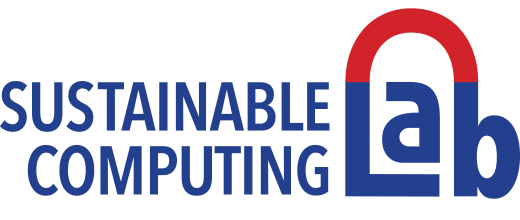Short description:
The full title of the project is “Towards Realization of Accountable Multi-modal Smart Mobility in Vienna: Do Smartphone Apps Influence Mode Choice Behavior among Viennese Citizens? The Role of User-interface Design in Influencing Users’ Mobility Behaviour in Vienna”. In this project, we conduct a representative survey to understand to which extent (and for which trips) Viennese citizens use different mobility Apps, and to which extend such Apps influence the mobility behaviour of people in Vienna. Moreover, we aim to develop a roadmap for the future development of research and policy on digital mapping technologies in Vienna. This roadmap will build on extensive literature research, exploratory HCI approaches and the representative study of app usage in Vienna while also integrating the Smart City and wider transportation public policy priorities of the City of Vienna. This roadmap will form the foundation of a long-term collaboration between WU and the City of Vienna regarding the App-based mobility policy. As a result, the roadmap will be finalised in a joint workshop between WU and the City of Vienna, providing clear paths for joint collaboration and future research in this area. Soheil Human, Stefanie Peer, Ben Wagner, and Till Winkler will collaborate on this project, which is funded by the City of Vienna WU Jubilee Fund.
We are delighted to inform you that the Privacy and Sustainable Computing Lab in collaboration with the Institute of Information Systems and Society (WU Wien), the Institute of Information Systems and New Media (WU Wien), and the Institute for Multi-Level Governance and Development (WU Wien) has started the ACCOUNTABLE-MOBILITY project. The full title of the project is “Towards Realization of Accountable Multi-modal Smart Mobility in Vienna: Do Smartphone Apps Influence Mode Choice Behavior among Viennese Citizens? The Role of User-interface Design in Influencing Users’ Mobility Behaviour in Vienna”. Soheil Human, Stefanie Peer, Ben Wagner and Till Winkler will collaborate on this project, which is funded by the City of Vienna WU Jubilee Fund.
Project Background
Mobility is one of the central focus areas of The Smart City Wien framework strategy which aims to provide “[t]he best quality of life for all inhabitants of Vienna, while minimising the consumption of resources. This will be realized through comprehensive innovation” until 2050. The interdisciplinary state of the art in Accountable Information Systems, Transport Economics, Human-computer interaction (HCI), etc. suggests that the emerging smart approaches to mobility are going to be increasingly personalised and Multi-modal. Mobility Apps (such as Google Maps, Qando Wien, WienMobile etc.) are more and more involved to support individuals to choose their mode of transportation for their everyday in-city travels. However, there is little known on to which extent these Apps actually influence mode choices in Vienna. If we assume that the Apps do influence the mobility behavior of Viennese citizens, it is crucial that the information provided in the Apps (especially regarding travel times) is unbiased. However, our pre-studies have indicated that some of the mobility Apps (such as Google Maps) are sometimes biased in favour of private motorised vehicles (personal cars, or car-sharing) and are hence inconsistent with the sustainability goals of the city of Vienna. In other words, there is no doubt that such Apps could play a fundamental supportive role in the emerging transport economy of Vienna; However, they could also mislead the individuals in their mobility decision making if they are not accountable and value-based regarding how they calculate different travel attributes, and how (and what) they show to the users.
Project Goals
In this project, we conduct a representative survey to understand to which extent (and for which trips) Viennese citizens use different mobility Apps, and to which extend such Apps influence the mobility behaviour of people in Vienna. Moreover, we aim to develop a roadmap for the future development of research and policy on digital mapping technologies in Vienna. This roadmap will build on extensive literature research, exploratory HCI approaches and the representative study of app usage in Vienna while also integrating the Smart City and wider transportation public policy priorities of the City of Vienna. This roadmap will form the foundation of a long-term collaboration between WU and the City of Vienna regarding App-based mobility policy. As a result, the roadmap will be finalised in a joint workshop between WU and the City of Vienna, providing clear paths for joint collaboration and future research in this area.
